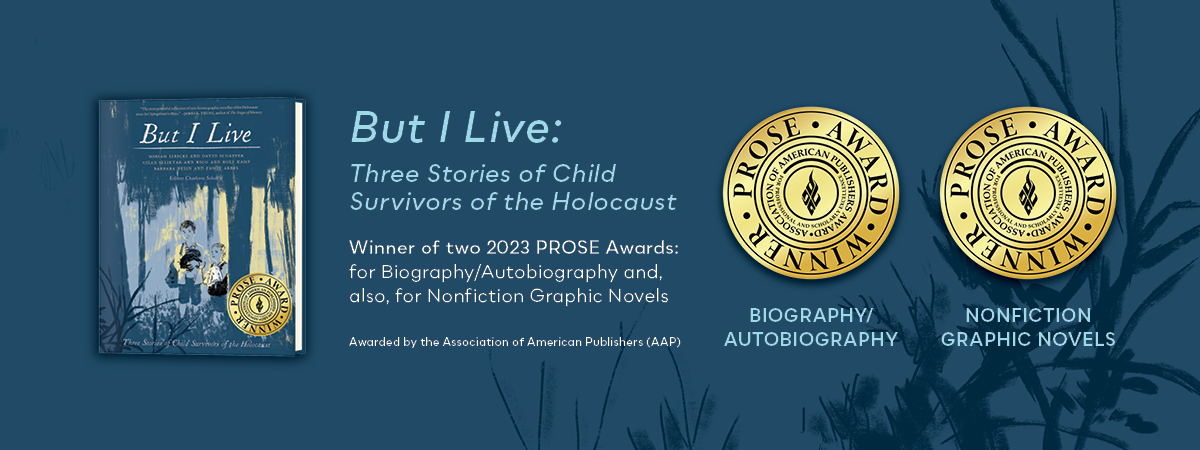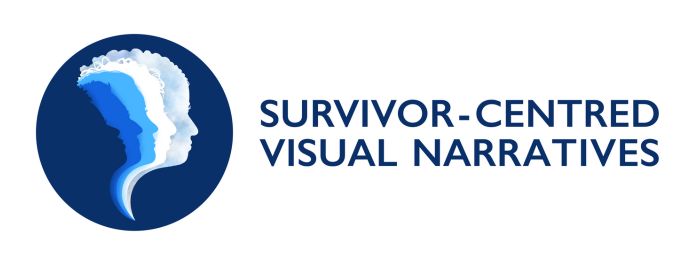Survivor-Centred Visual Narratives
SSHRC Partnership Grant (2022-2029)
Centering Human Rights in Witnessing and Testimony
“Survivor-Centred Visual Narratives” proposes a new way of gathering and commemorating the experiences of genocide and mass atrocity survivors, one that places survivors' well-being, agency, and cooperation at its centre. Our purpose is not to develop a blueprint for testimony collection but instead to restore agency to survivor narratives through four key components: a) co-creation of graphic narratives by survivors and artists, b) documentary film production, c) traveling exhibitions for museums and galleries, and d) educational materials designed for school curricula and informal learning sites around the world. To achieve these ends, we are advancing an international partnership comprising Holocaust survivors, as well as survivors from Rwanda, Bosnia, Kosovo, Iraq, Syria, and Indigenous genocides in Canada.
Genocide and Mass Atrocities: Cross-Disciplinary Perspectives
To drive meaningful change, our collective approach has been developed in partnership with 52 scholars from Education, Literary Studies, Journalism, History, Genocide Studies, Law, Digital Humanities, Philosophy, Political Science, and Sociology in 16 countries who will partner with 11 survivors, 13 artists and 36 museums, schools, human rights groups, and other organizations. Together, we will advance scholarly and public knowledge about human rights across learning contexts, from K-12 programs to museums and archives. We will design tools and approaches to help educators, curators, archivists, and other stewards of cultural memory teach about large-scale traumas.
Our research design pairs survivors with a variety of practitioners: artists to co-create graphic narratives, filmmakers to produce documentaries, archivists and curators to create museum installations, and educators to produce curricular materials. Above all, our priority is to centre the voices of survivors and honour their generosity with ethical practices that reduce harm wherever possible. Only by engaging with their experiences rigorously over time can we appreciate their unique contexts and explore the complexities of testimony gathering, management and dissemination. We seek to offer survivors the agency to shape the process of testimony collection so that we can prevent erasure and preserve the dignity of human experience.
Research Cluster Sites: Honouring Survivor Voices Across Contexts
Our five site-specific Research Clusters bring together survivors, research experts, artists, and community partners with expertise specific to the Clusters’ societal, cultural, and historical contexts. The goal of this approach is not to “compare” genocides but rather to find points of connection and to honour these experiences across contexts. While we have identified preliminary contextual differences to explore in each Cluster, our model creates space for survivors to steer the team toward unique areas of focus:
Cluster A: Child Survivors and Visual Traditions of Holocaust Representations
Cluster B: Political Counternarratives of Genocide in Rwanda
Cluster C: Gender and Sexual Violence in Accounts of War in Bosnia and Kosovo
Cluster D: Narratives of Diaspora and Ongoing Wartime Trauma in Iraq and Syria
Cluster E: Turtle Island - Resistance, Resilience, Survivance
Equity, Diversity and Inclusion
Human rights are fundamental to every aspect of this project. We seek to build knowledge of human rights, the dangers of exclusion, and ensure that the project is produced through methods that respect the rights and dignity of all participants. In consultation with EDI fair hiring practices, we will ensure equitable and inclusive student employment. We will facilitate accessible and flexible modes of team participation, through hybrid meeting options and complying with best practices for accessibility. Our data management’s flexible infrastructure will support a nuanced approach to public access and data sovereignty and allow greater collaboration and consultation in the social aspects of metadata.
We will tailor our knowledge mobilization materials to local contexts, and we have specialists in place to provide trauma support to all survivors, artists, partners, collaborators, researchers, and trainees involved in this work. Our Cluster and Governing Board members will monitor progress and ensure that we maintain high ethical standards as our network grows.
Future Contributions to Knowledge
The survivors involved in this project will participate in these discussions not only as knowledge holders but also as experts in the experience of testimony documentation who can co-create our processes and provide insight into the impact that our approach might have on future survivors.
Our empathy-driven, trauma-informed approach to testimony collection will build a framework that reimagines the role of knowledge holders in academic research. Historically, colonial archiving and classification practices have largely erased Indigenous knowledges, superimposed colonial logic, or exposed sacred knowledges inappropriately. This project, therefore, is sensitive to and respects the many-faceted relationships needed in creating “spaces” for Indigenous knowledges and classification systems. We recognize these practices differ from community to community, nation to nation, and are a living agreement based on relationships and trust. Our practices and our preservation technologies will adhere to best practices developed by our communities.
Recent Publications
Our Partnership Grant approach builds on the foundation of a SSHRC Partnership Development Grant, “Narrative Art and Visual Storytelling in Holocaust and Human Rights Education” (www.holocaustgraphicnovels.org), through which we piloted our methodology in partnership with Holocaust survivors. Together we published “But I Live: Three Stories of Child Survivors of the Holocaust” (New Jewish Press, 2022) / “Aber ich lebe: vier Kinder überleben den Holocaust” (C.H. Beck, 2022).
“But I Live”/”Aber ich lebe” has received a Canadian Jewish Literary Award (Category: Biography/Memoir), a LUCHS-Buchpreis (Monat November) for young adult literature and two PROSE Awards from the Association of American Publishers (for Biography/Autobiography and for Nonfiction Graphic Novels).

Awards, Honours & Scholarships
Awards and nominations for But I Live: Three Stories of Child Survivors of the Holocaust (New Jewish Press/University of Toronto Press, 2022):
- Nominee | 2023 Will Eisner Comic Industry Awards | Shortlisted for Best Realty-Based Work
- Honourable Mention | 2022 INDIES Book of the Year Awards | Category: Graphic Novels and Comics
- Finalist | 2023 Excellence in Graphic Literature Finalist | Young Adult Award Finalist (Non-Fiction)
- Nominee | 2023 | JewCie Award for Diverse Representation | Jewish Comics Experience (JewCE) convention; Center for Jewish History in New York City
- 2023 Western Canada Jewish Book Award in the Kahn Family Foundation Prize for Holocaust category
- 2023 PROSE Award for Biography/Autobiography. Awarded by the Association of American Publishers (AAP)
- 2023 PROSE Award for Nonfiction Graphic Novels. Awarded by the Association of American Publishers (AAP)
- 2022 LUCHS-Preis (Luchs-Prize) for young adult literature in the month of November. Awarded by Radio Bremen and Die Zeit
- 2022 Canadian Jewish Literary Award | Category: Biography/Memoir

